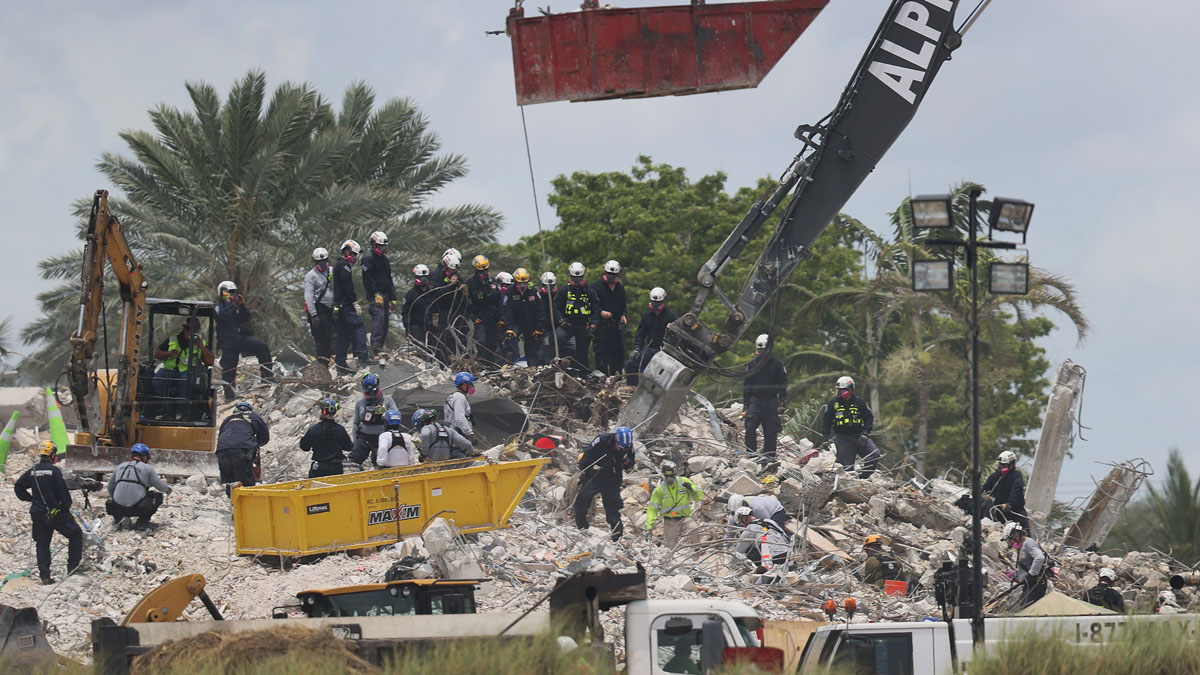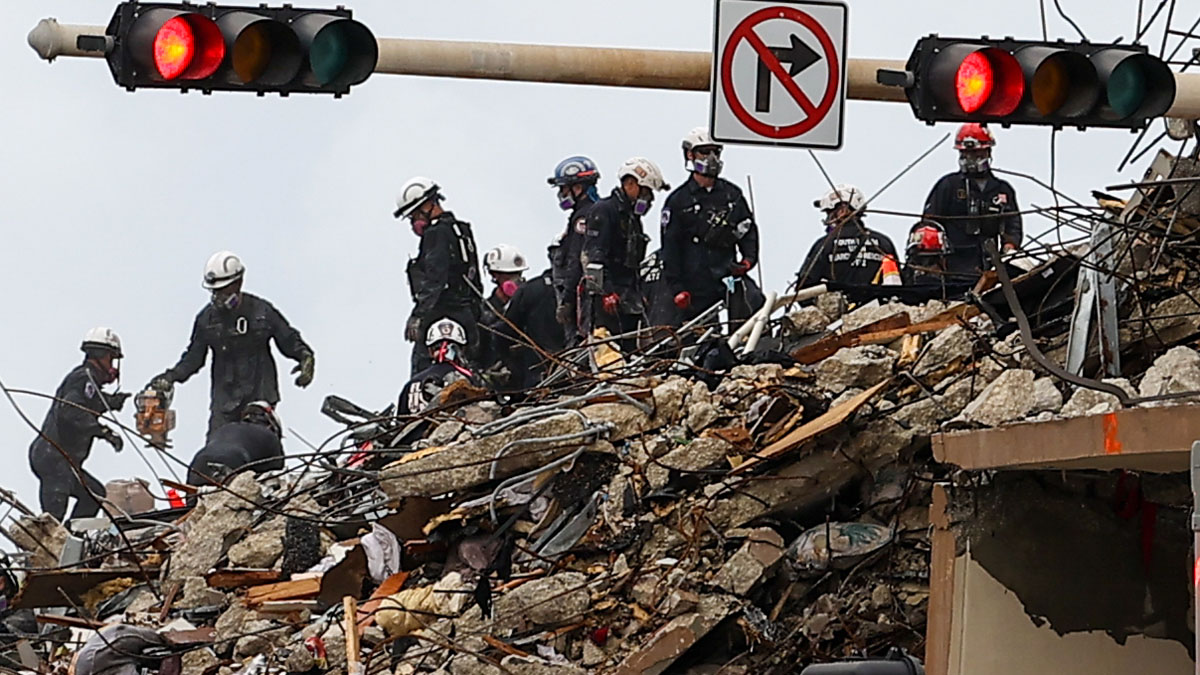As crews peel away layer after layer of the collapsed condo tower in South Florida, the death toll increases — and so does the burden of collecting and identifying the dead, as rescuers and pathologists balance the rigors of their duties with relatives' desperate need for closure.
Nobody has been found alive since the first hours of the June 24 disaster that killed at least 27 people in the town of Surfside, so updating the families has so far been a matter of delivering bad news. And what crews are finding is often not intact.
CONDO COLLAPSE LATEST
“It’s not necessarily that we are finding victims. We are finding human remains,” Miami-Dade County Assistant Fire Chief Ray Jadallah said to audible gasps and moans on a recent day when he had the delicate task of briefing relatives at a family assistance center set up in a hotel near the site.
Get South Florida local news, weather forecasts and entertainment stories to your inbox. Sign up for NBC South Florida newsletters.
With more than 115 people still unaccounted for, the task could soon overwhelm the local medical examiner’s office, and the federal government has sent a team of five people from the University of Florida to help with DNA analysis. More help could be on the way, said Jason Byrd, commander of the Florida Mortuary Operations Response System.
The medical examiner has already run into problems. When pathologists were trying to deliver one woman's body in time for a funeral, some faulty DNA testing meant they had to cut off a finger and rush it to a lab to log her fingerprint, an official told The Associated Press on condition of anonymity because he was not authorized to discuss the incident.
Time is a complicating factor as well, as experts say DNA analysis becomes less reliable as bodies start to decompose.
But the way the building collapsed, with its 12 floors pancaking on top of each other, may make some of the work relatively straightforward as crews clear debris from the top and work their way down, according to Dennis Dirkmaat, who chairs the Department of Applied and Forensic Sciences at Mercyhurst University.
They “remove the uppermost layer in a horizontal manner, locate all of the individuals found there,” said Dirkmaat, who worked on recovery and identification of victims from United Airlines Flight 93, which crashed in Pennsylvania on 9/11. “You know exactly where they’re located. You can eventually place them in a particular apartment or a particular location.”
Lt. Col. Oz Gino, the commander of an Israeli search and rescue battalion working at the Florida site, said his team used blueprints of the building to create detailed 3D images of the disaster site to aid in the search. They also gathered information from families of the missing to build a room-by-room model laying out where people would have been sleeping during the pre-dawn collapse.
The pace of finding victims' remains has been slow so far, with efforts focused on searching for anyone who may still be alive. That part of the process should take a couple of weeks before it turns into a recovery phase, which could also run for weeks.
Many of the building's occupants are Jewish, and emergency workers are being careful to heed religious sensitivities as they handle what they find.
In the Jewish faith, the whole body and all its parts, including limbs, blood and tissue, must be collected in preparation for burial. Bodies should not be left overnight or exposed in the open as they are considered to be made in the image of God.
Jadallah said every time crews find human remains, they remove them and clean the area. They also work with a rabbi to ensure any religious rituals are done properly.
The medical examiner has honored the wishes of some relatives not to perform autopsies, which are not mandatory unless there is a criminal investigation. They are forbidden in Jewish tradition on the grounds that the body must not be violated after death.
Mark Rosenberg, the head of a team from the nonprofit burial society Chesed Shel Emes, said he has about 20 people near the collapse site who are summoned every time someone is pulled from the rubble to say prayers.
And Yossi Landau, who leads volunteers with the Israeli organization Zaka, which assists in identifications after accidents, disasters and bombings, said his group deployed a crew to the site to assist with burial preparation.
It’s a race against the clock, since Jewish tradition also says burials must be timely: The remains of Leon and Christina Oliwkowicz, an elderly couple from Venezuela, were identified June 27 and their funeral was held the following day.
“You have to bury the body in its entirety," Rosenberg said, "and as soon as possible.”
____
Associated Press writers Russ Bynum in Surfside, Florida, and Ilan Ben Zion in Jerusalem contributed.



